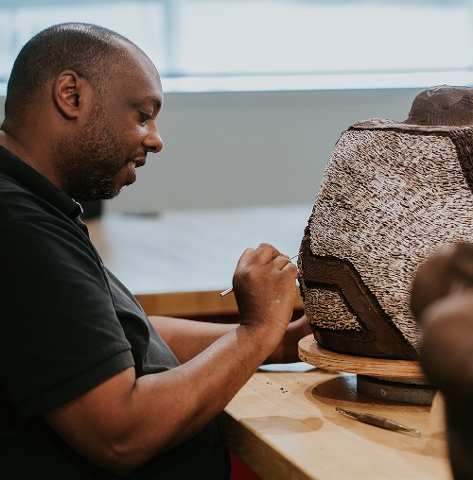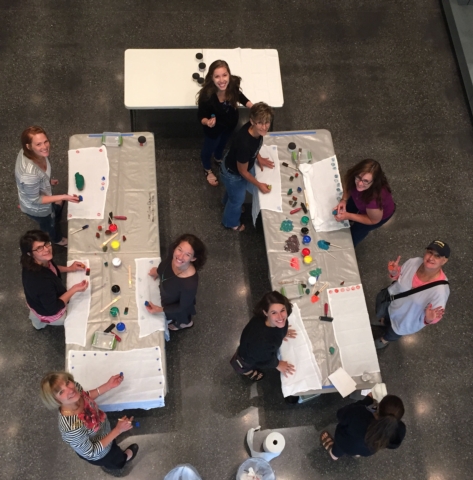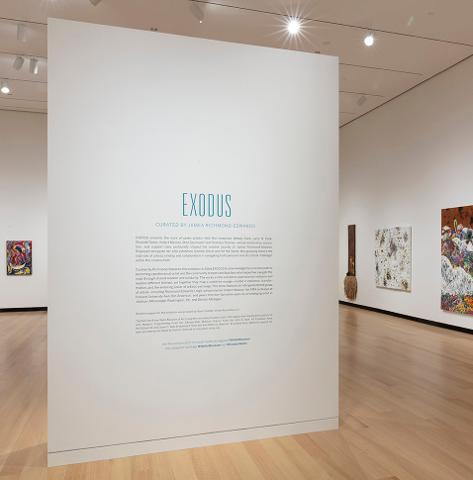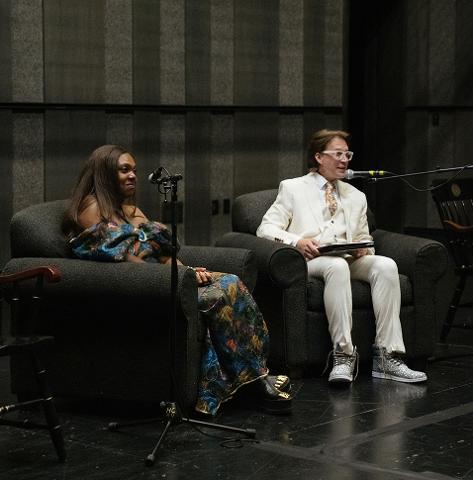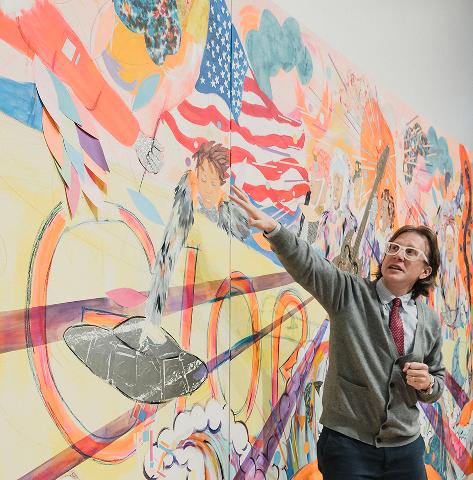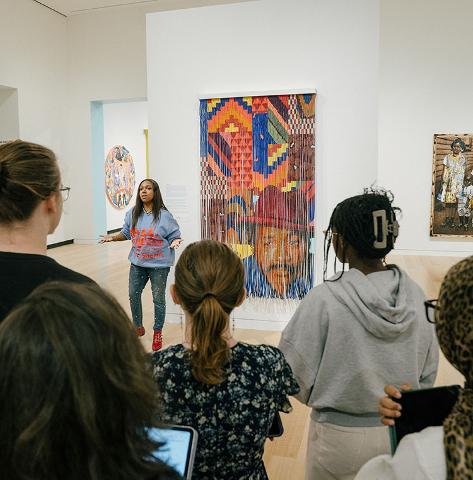Julia Jacquette, spread from "Playground of My Mind" (2010-15), gouache on paper, each sheet 18 x 13 1/2 inches (© 2016 Julia Jacquette)
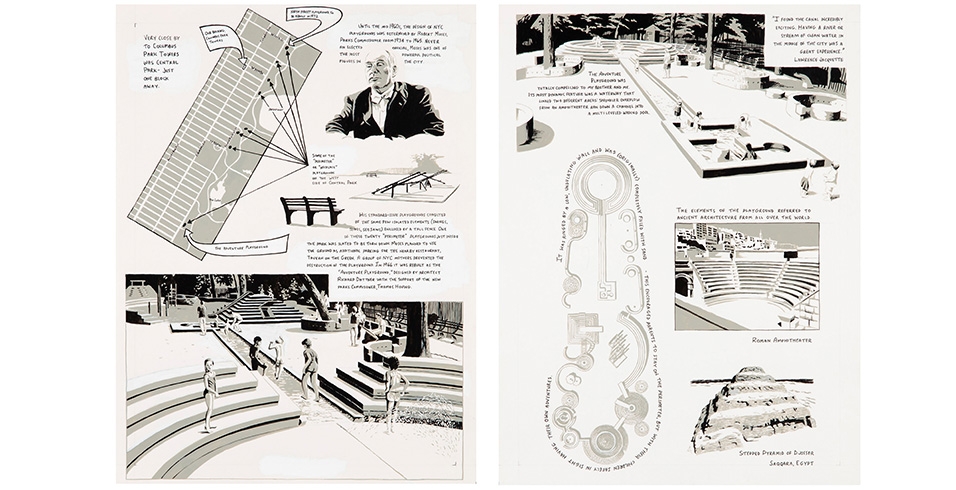
Julia Jacquette’s Playground of My Mind is a graphic novel that weaves memoir with the rise of the adventure playground in the 1960s and ’70s. Growing up in Manhattan, the future artist played on modernist forms inspired by ancient pyramids and amphitheaters in Richard Dattner’s Adventure Playground in Central Park, and explored the tiered levels in the “miniature city within the larger city” created by M. Paul Friedberg in the courtyard of her Columbus Park Towers home. As an adult, it was not just the designs of the playgrounds with their gridded systems and sculptural shapes that would influence her paintings, but also the experience in the flow of energy and activity offered by their architecture.
“Thinking back on it, the playground was the perfect answer to every design problem I was ever given in art school,” Jacquette writes in Playground of My Mind, recently released by Prestel with the Wellin Museum of Art at Hamilton College. “It expressed variations on a theme, iteration of form, contained implied subject matter, yet was never overly literal. Everything was clearly and simply visually stated. Repeated patterns in the forms would contain subtle variations.”
Julia Jacquette: Unrequited and Acts of Play, now on view at the Wellin Museum in Clinton, New York, includes 60 gouache works she created for Playground of My Mind, amid a career survey of her advertising-influenced art. A version of the exhibition will travel to the Visual Arts Center of New Jersey in Summit, New Jersey, in September. Her illustrations in the publication picture the past vividly, in a subdued palette of gray punctuated by color, such as her mother’s distinctive 1970s blue wool coat adorned with a red circle. Jacquette also breaks down the playgrounds into diagrams, with details of their textures and interactions.
Along with the Dattner and Friedberg sites, she highlights a playground her father, an architect, helped design through the firm Ross Ryan Jacquette. The Discovery Play Park in Central Park had swinging ropes, ladders, slides, and a concrete “volcano” for climbing and tunneling. Later, while walking the streets of Amsterdam as an adult, she was struck by the playground architecture of Aldo van Eyck that appeared all over the Dutch city, using a similar template of geometric concrete, sand, water features, and modular design for open play.
As she notes in the book, these adventure playgrounds are now disappearing or transforming, a fate common to mid-century playgrounds around the world. The Columbus Parks Tower playground was destroyed due to its need for pricey repairs, the Adventure Playground is being altered, and the Discovery Play Park has likewise experienced numerous changes, such as the elimination of some of its structures and its bed of sand. Preservation is often more expensive than rebuilding for these sites, and pebbled concrete is not exactly the safest material for scrape-prone knees.
Yet Jacquette’s visual narrative emphasizes the lasting creativity encouraged by engaging with these playgrounds. She quotes Richard Dattner, who once said: “The next best thing to a playground that children designed themselves is a playground that an adult designed, but incorporating the possibility for children to create their own places with in.” As she concludes, these sites instilled in her the idea of an artistic work place “as an arena of unjudged, unlimited, joyful play.”
Playground of My Mind by Julia Jacquette is out now from Prestel. Julia Jacquette: Unrequited and Acts of Play continues at the Ruth and Elmer Wellin Museum of Art at Hamilton College (198 College Hill Road, Clinton, New York) through July 2.


